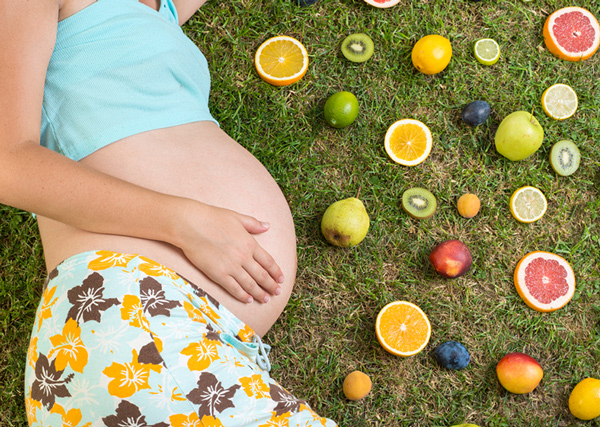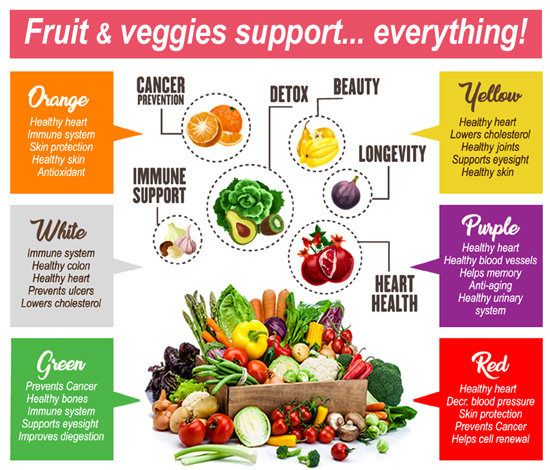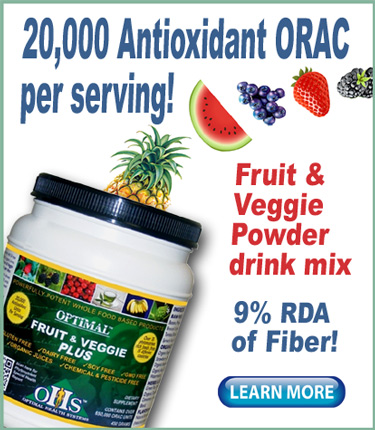A new study from UK’s University of Birmingham is reinforcing just how important antioxidants are for good health—and how detrimental processed foods are.
In this case the research relates to healthy pregnancies.
The researchers found a diet rich in fruit, vegetables, seafood, dairy and eggs were associated with lower miscarriage odds. The most pronounced association was found with fruits and vegetables.
Meanwhile, diets with a high content of processed foods were associated with an almost doubled risk of miscarriage.
Though most people are unaware of the statistics, miscarriage rates around the world are common. Even in Western
countries experts estimate about one in six pregnancies end in miscarriage.
Link Between an Antioxidant-Deficient Diet and Miscarriages
Researchers note that determining the cause of high miscarriage rates is difficult. While complications in late-term
pregnancies can usually be pinpointed, almost half of early pregnancy losses are unexplained.
There is evidence that lifestyle choices play a big part in miscarriage rates; though how big of a part, and which choices are most detrimental, are topics that are hotly debated. The University of Birmingham study shows that consuming high-antioxidant foods and supplements is one lifestyle choice that all expectant mothers should make.
Foods High in Antioxidants to Include in Your Diet
To conduct the study researchers performed a systematic review and meta-analysis of 20 observational studies including a total of 64,776 healthy women of reproductive age who had had at least one pregnancy outcome.
From 11 cohort and nine case-control studies, they found six with suitable data for meta-analysis, covering 13,183
women.
The research was conducted at the Tommy’s National Centre for Miscarriage Research at the University of Birmingham. The findings were published in Fertility and Sterility in April 2023.
The study revealed no evidence of an association between adherence to pre-defined dietary patterns such as the
Mediterranean diet or ‘fertility diet’ and risk of miscarriage. However, when they compared high and low consumption of specific food groups, a definite risk association was found.
For example:
• High consumption of fruit was associated with a 61% reduction in miscarriage risk compared to subjects with a low fruit consumption.
• High consumption of vegetables was associated with a 41% reduction in miscarriage risk compared to subjects with a low vegetable consumption.
Other foods groups were also associated with risk reduction in varying amounts. A 37% risk reduction for dairy
consumption; 33% risk reduction for grains; and a 19% reduction for seafood and eggs.
“These are foods typically found in ‘healthy’ well-balanced dieta, consistent with previous evidence showing that such
diets, which are rich in vitamins and minerals, are important during pregnancy,” the researchers wrote.
Stated simply, the analysis showed that diets with a high antioxidant index score and low in pro-inflammatory foods were associated with reduced miscarriage risk.
Generally speaking “high antioxidant foods” are raw or minimally processed foods—adherants describe them as foods
that are closest to nature as possible.
Meanwhile “pro-inflammatory foods” are typically highly processed. The worst offenders in this category are sugary foods, fried foods, and packaged foods with numerous added ingredients.
The researchers noted that their findings were unclear for both red and white meat, fat, oil, and sugar substitutes.
“This systematic review and meta-analysis provides evidence of a protective association between fruit, vegetables, seafood, dairy products, eggs and cereal against miscarriage,” the researchers wrote in the study conclusions. “Furthermore, an overall dietary exposure that is high in quality with healthy nutrient sources, low in pro-inflammatory factors or unhealthy food groups such as highly refined, processed meat or sugar substitutes may be associated with a reduction in miscarriage risk.”
The 65 page journal pre-proof, including 111 source citations, is available for PDF download here.
Take Action for a Healthier Pregnancy
A high-antioxidant diet has been shown to reduce miscarriage risk, while processed foods can increase it. By prioritizing nutrient-dense foods and considering high-quality supplements, you can support a healthy pregnancy and give your baby the best possible start in life.
Ready to take charge of your health? Increase your intake of fruit and veggies, and receive the proven health benefits easily and cost-effectively with Optimal Fruit & Veggie Plus by Optimal Health Systems.
– – –
Increase your intake of fruit and veggies, and receive the proven health benefits easily and cost-effectively with Optimal Fruit & Veggie Plus by Optimal Health Systems.
– – –
Sources: Fertility and Sterility.



